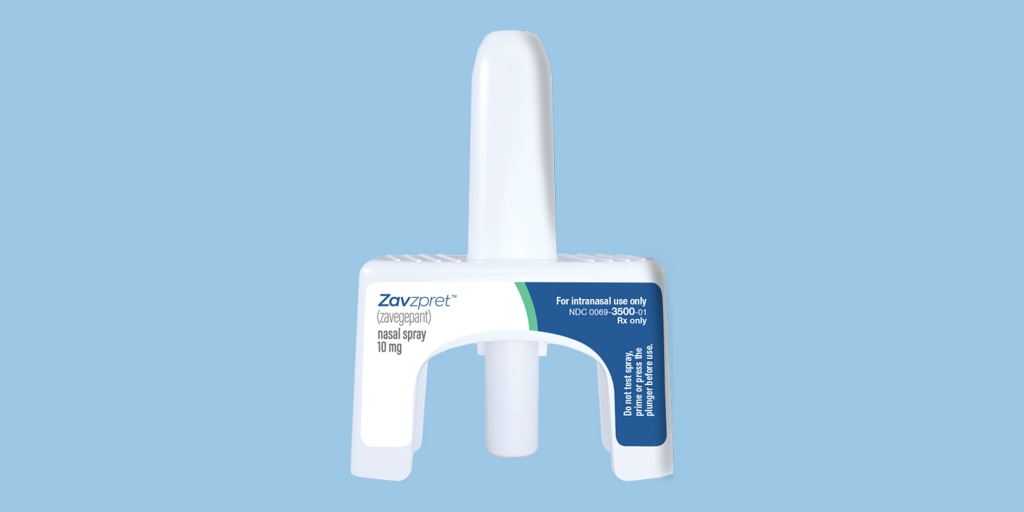FDA approves new fast-acting nasal spray for migraines
The Food and Drug Administration on Friday approved Pfizer’s nasal spray for migraines, giving patients access to a potentially fast-acting pain relief option.
The drug, Zavzpret, also known as zavegepant, was approved for the treatment of acute migraine with or without aura in adults, the company said. Aura refers to any neurological disturbance that appears shortly before or during the development of migraines.
Pfizer gained the drug, as well as the FDA-approved oral migraine pill Nurtec ODT, through its $11.6 billion buyout of Biohaven Pharmaceuticals last year.
The drug, whose pricing will be revealed at its launch in July, is “expected to be comparable in price to other FDA approved migraine medicines” which belong to the same class, Pfizer told Reuters.
Zavzpret belongs to a class of drugs called calcitonin gene-related peptide inhibitors and will compete with other therapies from AbbVie, Eli Lilly, Amgen and Teva Pharmaceutical.
Pfizer is hoping to gain a competitive edge with Zavzpret’s quick speed of action, and Biohaven has pitched it as the “Epipen of migraine.”
The new drug isn’t the first nasal spray for migraines, although Dr. Emad Estemalik, a headache specialist at the Cleveland Clinic, said the quick, 15-minute relief gives the drug an advantage over the existing oral treatments.
“A lot of patients, when they have migraines, they’re throwing up, for instance, so they may not be able to hold oral medication,” he said. “That’s where an intranasal comes as an advantage.”
Dr. Rashmi Halker Singh of the Mayo Clinic in Phoenix had a similar opinion.
“Migraine is more than head pain,” the neurologist said in an interview.
People with migraines often have many other symptoms, such as light sensitivity and nausea, and can benefit from a medication that’s not a pill, she said.
Halker Singh, who is also on the board of the American Headache Society, is excited about the new medication, although she notes that about 20% of patients in the clinical trial experienced an altered sense of taste, compared to about 4.7% of patients who were given a placebo.
The FDA approval is based on data from a late-stage study that showed the drug, when compared to a placebo, proved superior in 13 of 17 goals, including pain relief in 15 minutes, normal function at 30 minutes and return to normal at two hours.
The drug, when compared to a placebo, failed to show statistically significant difference in one of the secondary goals of returning to normal function at 15 minutes.
The drug’s label includes a warning advising patients to stop taking it in case of hypersensitivity reactions, such as facial swelling and skin rashes.
Migraine affects 39 million people in the United States, according to the Migraine Research Foundation.
No Byline Policy
Editorial Guidelines
Corrections Policy
Source
